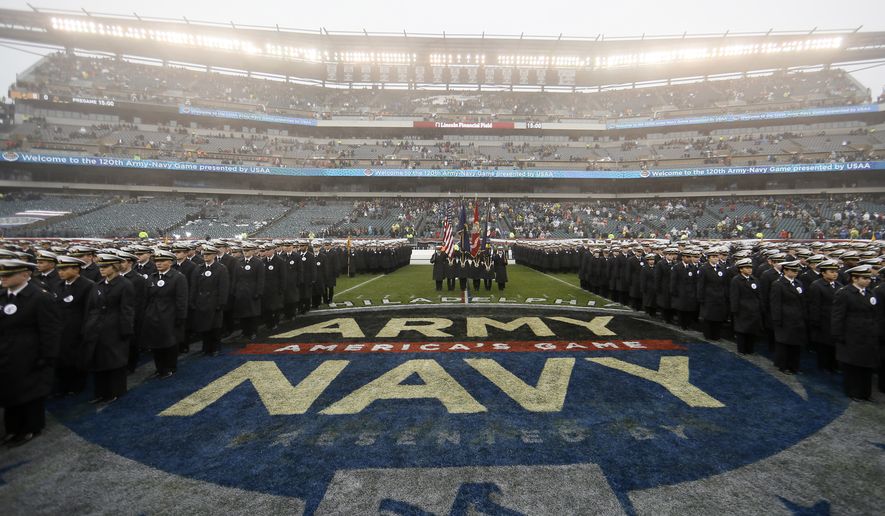At least one key West Point official is standing by cadets suspected of making a white power hand gesture during the on-field festivities before the Army-Navy game on Saturday.
Lawrence Scott, who is black, is director of player development for the U.S. Military Academy’s football team. He is also a West Point graduate himself who played four years worth of varsity football for Army.
In a lengthy string of Twitter messages this week, Mr. Scott criticized the rush to judgment in assigning a negative meaning to the “OK” hand sign flashed by a few cadets and U.S. Naval Academy midshipmen during the ESPN pre-game show.
The hand sign has been embraced by white supremacists as a coded symbol of support, but it is also a gesture in the “Circle Game,” a contest in which those who see the gesture are rewarded with a playful punch in the arm. A vast online debate has erupted over what the intent behind the gesture flashed at the Army-Navy game.
“To immediately assign meaning to a gesture made by a young Cadet/Midshipmen without consideration of their disposition is irresponsible. It’s quite frankly unfair to assume such a disgusting thing about an individual,” Mr. Scott wrote in his Twitter message at @LawrenceRScott.
Mr. Scott said he immediately recognized the hand gesture from his own time on the campus as an element of the “Circle Game,” not anything more sinister.
“It’s a game these students play, white and black alike, I see it almost every day. They’ve even gotten me with it before,” he wrote.
Mr. Scott said he has had his own “fair share of encounters” with people who thought his skin color made him inferior.
“I will be the first to say that racism and supremacy ideologies should have no place in our military or in our nation,” he wrote.
The Army-Navy Game is one of the few moments in the heavily-regimented life of a cadet or midshipman where they are allowed to “let their hair down” a bit, said Mr. Scott who noted that academy students tend to live in a more sheltered system than other college students. They may not even be aware that some people have ascribed a racist intent to the common “OK” hand gesture.
“In other words, if it’s not happening immediately around them, they are not aware of it,” Mr. Scott wrote.
• Mike Glenn can be reached at mglenn@washingtontimes.com.




Please read our comment policy before commenting.